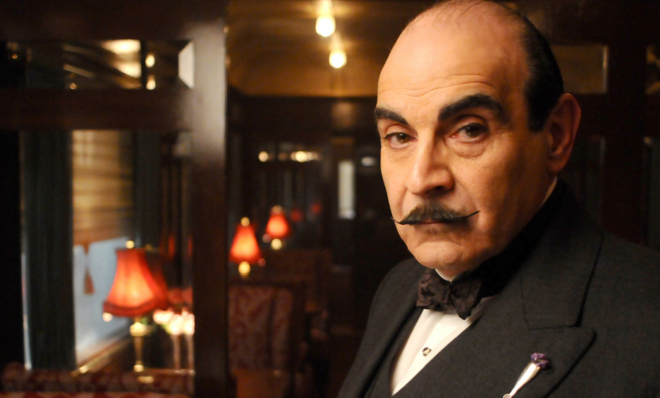Walter White isn't the first fictional character to get an obituary
A dapper Belgian detective beat him to it


A free daily email with the biggest news stories of the day – and the best features from TheWeek.com
You are now subscribed
Your newsletter sign-up was successful

While this may seem like a unique situation for someone who existed for only entertainment purposes, Heisenberg is actually the second fictional character to get such a real-world honor. A dapper Belgian detective pioneered that meta niche nearly 40 years ago.
Hercule Poirot was one of crime writer Agatha Christie's most famous characters. The short, bald, mustachioed detective first popped up in Christie's 1920 novel The Mysterious Affair at Styles. He went on to appear in more than 40 of the English author's novels, short stories, and compilations. Though Christie quickly grew tired of her main character — even calling him a "detestable, bombastic, tiresome, ego-centric little creep" — she continued his storyline because the public adored him so.
But, finally, in 1975, the detective met the inevitable. Christie actually wrote Poirot's final case in the 1940s, but reportedly had the manuscript locked away for when the time was right. Curtains: Poirot's Last Case wasn't released in the U.S. until October, 1975, but The New York Times ran the character's obituary a few months earlier, on the front page of its August 6 paper:
The Week
Escape your echo chamber. Get the facts behind the news, plus analysis from multiple perspectives.

Sign up for The Week's Free Newsletters
From our morning news briefing to a weekly Good News Newsletter, get the best of The Week delivered directly to your inbox.
From our morning news briefing to a weekly Good News Newsletter, get the best of The Week delivered directly to your inbox.
Hercule Poirot, a Belgian detective who became internationally famous, has died in England. His age was unknown. Mr. Poirot achieved fame as a private investigator after he retired as a member of the Belgian police force in 1904… At the end of his life, he was arthritic and had a bad heart. He was in a wheelchair often, and was carried from his bedroom to the public lounge at Styles Court, a nursing home in Essex, wearing a wig and false mustaches to mask the sings of age that offended his vanity. In his active days, he was always impeccably dressed. (New York Times)
To read the full obituary, go to the New York Times.
Walter White obituary courtesy of the Albuquerque Journal.
A free daily email with the biggest news stories of the day – and the best features from TheWeek.com
Lauren Hansen produces The Week’s podcasts and videos and edits the photo blog, Captured. She also manages the production of the magazine's iPad app. A graduate of Kenyon College and Northwestern University, she previously worked at the BBC and Frontline. She knows a thing or two about pretty pictures and cute puppies, both of which she tweets about @mylaurenhansen.
-
 The 8 best TV shows of the 1960s
The 8 best TV shows of the 1960sThe standout shows of this decade take viewers from outer space to the Wild West
-
 Microdramas are booming
Microdramas are boomingUnder the radar Scroll to watch a whole movie
-
 The Olympic timekeepers keeping the Games on track
The Olympic timekeepers keeping the Games on trackUnder the Radar Swiss watchmaking giant Omega has been at the finish line of every Olympic Games for nearly 100 years
